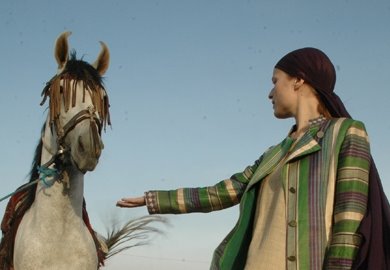Yesterday we went with a few friends on a daytrip to Panjshir, a fertile valley surrounded on all sides by mountains. Though it is no more than 100 kilometers from Kabul, it is like a different universe. This was my first time out of the city, and it was simply amazing. Offroading in a Toyota minibus, through flooded creeks and over narrow bridges, I got to see an entirely different Afghanistan. Here are some pictures:
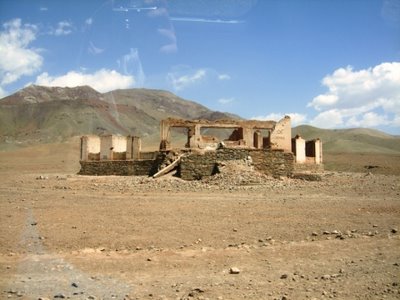 This is probably what most people expect the Afghan countryside to look like--dry, deserted, and war-torn.
This is probably what most people expect the Afghan countryside to look like--dry, deserted, and war-torn.
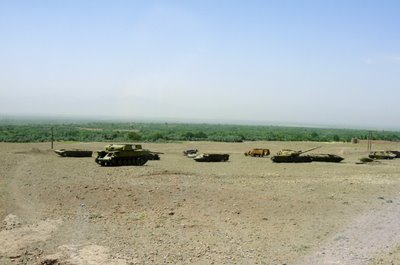 This particular spot looked like an art installation, or as if the Soviets just gave up one day, got out of their tanks and walked home.
This particular spot looked like an art installation, or as if the Soviets just gave up one day, got out of their tanks and walked home.
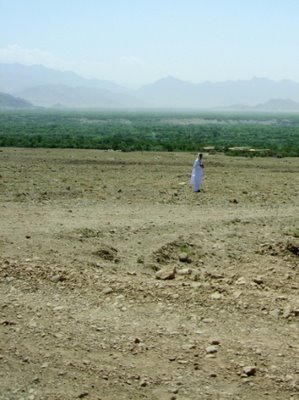 As you get closer to the valley, the landscape gets a bit more green. The man in traditional white garb provides such beautiful contrast.
As you get closer to the valley, the landscape gets a bit more green. The man in traditional white garb provides such beautiful contrast.
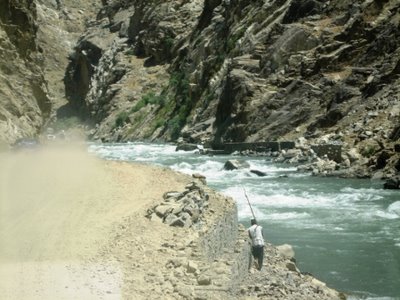
You enter the valley through a narrow pass, no wider than the river plus the dusty road running alongside it. This is as far as both the Soviets and the Taliban ever got--the Pansjiris wouldn't let them enter the valley.
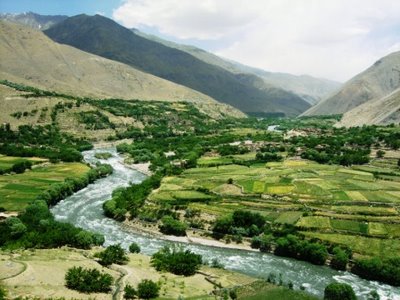
Through the gorge and over a few hills, then the valley opens up like a garden of Eden. It is majestic, awe-inspriring, and absolutely stunning in all its colorful glory.
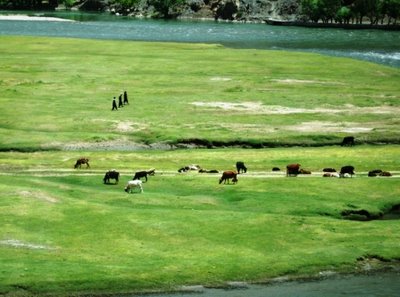
Cows grazing in a field surrounded by water; three men walking by in a neat row.
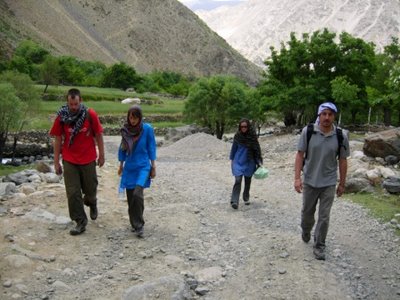
We hiked up a dirt road into a smaller, connected valley. As the road got smaller and rockier, it looked as though we had left civilization--but then we would come upon a group of houses perched on a hillside, or an old weapons and ammunition cache with a seemingly cheerful guard.
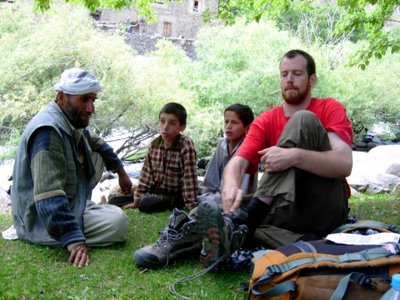
As we sat down for a picnic, we were joined by a few locals. They were incredibly friendly and nice, admired my friend's hiking boots, and had a bite with us. I don't think they get a lot of tourists.
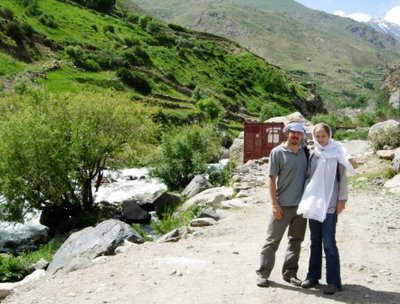
Except for the strangely misplaced shipping container (how did it get there?), the headscarf, and the questionable dishrag on O's head, this could definitely be Switzerland. Note the snow on the peaks farthest off in the distance!
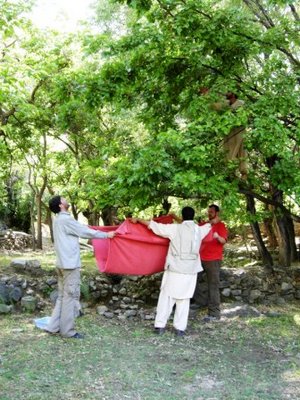
On the way home, we stopped in my coworker's village to meet his cousins. They brought us to their garden and shook down a mulberry tree to give us plenty of the sweet berries to munch on.
It was so amazing to get out of Kabul and see the clean, beautiful, and peaceful side of the Afghanistan. I kept thinking how this country has such potential for adventure tourism. Once the whole place has been cleared of landmines, that is.
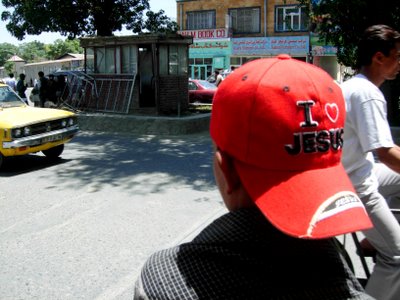 I saw this kid crossing the street and couldn't get over how funny his baseball cap was given the very Muslim nature of our surroundings. Somehow I managed to take a picture, even though crossing a street here is terrifying enough without the photography aspect. What is the story behind this cap? Is he Kabul's only Christian? Does he think it is the name of a sports team? Are there missionaries in Afghanistan handing out "I Heart Jesus" paraphernalia? If so, does the Taliban know? Ah, so many questions.
I saw this kid crossing the street and couldn't get over how funny his baseball cap was given the very Muslim nature of our surroundings. Somehow I managed to take a picture, even though crossing a street here is terrifying enough without the photography aspect. What is the story behind this cap? Is he Kabul's only Christian? Does he think it is the name of a sports team? Are there missionaries in Afghanistan handing out "I Heart Jesus" paraphernalia? If so, does the Taliban know? Ah, so many questions.
 This is probably what most people expect the Afghan countryside to look like--dry, deserted, and war-torn.
This is probably what most people expect the Afghan countryside to look like--dry, deserted, and war-torn.
 As you get closer to the valley, the landscape gets a bit more green. The man in traditional white garb provides such beautiful contrast.
As you get closer to the valley, the landscape gets a bit more green. The man in traditional white garb provides such beautiful contrast.






